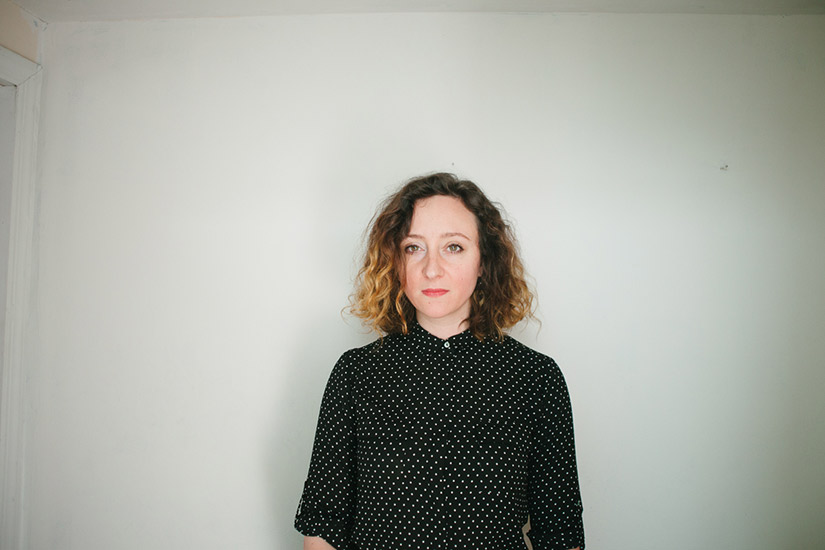Tech
This New Podcast Wants to Show You a Different Side of Love
The Shadows is from award-winning podcaster Kaitlin Prest and the CBC
by : Patricia Karounos- Oct 4th, 2018

Listening to The Shadows, a CBC podcast from longtime podcaster Kaitlin Prest, feels almost too intimate at times. The audio fiction (a first for both CBC and Prest)—described as telling “the anatomy of a relationship”—is about a young woman, also named Kaitlin, who thinks the love she’s seen in movies is the real deal. The six-episode series follows the course of one of Kaitlin’s relationships from crush to (spoiler!) end. It’s easy to forget—with its hushed tones, breathy whispers and raw conversations that feel like they should be private—that it is a fiction-based podcast.
Although it is a fictional story, Canadian-born, Brooklyn-based Prest drew from her own life when creating The Shadows—so much so that certain moments from the big breakup episode are pulled directly from her diary. “It’s so true to life it maybe verged on boring,” she tells us. “But that’s the thing about realism. It isn’t always fireworks and explosions and I think it’s important to see that represented.”
While The Shadows differs from Prest’s previous work in that it is fictional, it’s a natural extension of what she’s always set out to do. Her first foray into podcasting came a decade ago, when she began producing a sex-positive radio show while studying in Montreal. Prest moved to New York and, with a friend, eventually turned her beloved show into The Heart, a podcast about intimacy and humanity, which averaged more than 2 million listeners a year. When Prest and her team announced they would stop making The Heart, avid listeners wondered what she would do next.
Finally, they have their answer: all six episodes of The Shadows dropped on CBC podcasts last week. We caught up with Prest to chat about her latest project, podcasting and love.
On her inspiration for The Shadows “The big answer to that question is that this idea of love that I grew up dreaming about, and watching in movies and seeing in culture that is not the love that I see in life. The most important thing of this entire show is if we measure our love against the love we grew up hearing in songs, we may miss the love that’s right in front of us, which is so much more complicated. And so my mission as an art maker has always been, in a way, to sort of create stories that are as rich as the best rom-coms, but a little bit more accurate to the way love actually is. [The show] lets people feel faith in a quieter love.”
On the challenges of making the show “The radio rom-com is kind of an untapped genre. My life’s work is interrogating the realm of desire through sound, so the biggest challenge was to try to make you feel like you have a crush on the heartthrob in the story the way you would while watching a movie. Without the visual, pretty face, how can you make somebody feel that way? A lot of it was the quality of the actor’s voice and then through the writing.”
On making the jump to fiction-based podcasting “The reason I switched to fiction is that I started to believe fiction is almost a more accurate way of portraying emotional truth. The problem with documentaries, especially when you’ve set out to try and document the realm of emotion, and desire and all these invisible things, is that you can’t record them. It feels more true to lean into the fact that this is my point of view instead of claiming it as someone else’s.”
On what podcasts she listens to “When you’re really in the dept of making something, a lot of podcast creators just kind of go on a listening detox. But I liked The Uncertain Hour, which was about welfare in America. There’s one called There Goes the Neighborhood, which is really great investigative reporting about gentrification. I have a fascination with the type of work I don’t really do. There’s also this podcast called Bitchface that really reminds me of the early days of Audio Smut [which became The Heart]. It’s extremely irreverent, totally in your face, super radical, queer, feminist. I have so much respect for those women.”
Newsletter
Join our mailing list for the latest and biggest in fashion trends, beauty, culture and celebrity.



